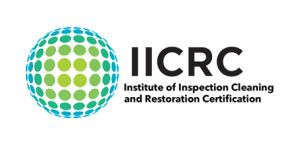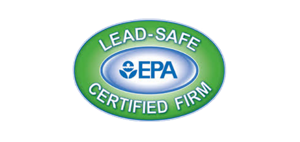Water damage is a common problem that many homeowners have to deal with. Whether it be from a burst pipe, heavy rains, or flooding, the effects of water damage can be devastating. If you find yourself in a situation where your home has been affected by water damage, you may be wondering whether it is safe to sleep in a house with water damage.
The answer to this question depends on various factors, such as the severity of the damage and the hidden hazards that water damage can introduce into a property. In this section, we will assess the safety concerns associated with sleeping in a water-damaged house and provide insights into whether it is safe to stay overnight in such properties.
Key Takeaways
- Sleeping in a water-damaged house can pose safety risks to you and your family.
- The potential hazards introduced into a property by water damage can range from structural to health risks.
- It is generally advisable to avoid staying overnight in a water-damaged house until the necessary repairs and restoration have been completed.
- You can mitigate water damage risks by taking preventative measures and seeking expert assistance.
Understanding Water Damage and Its Hazards
Water damage can have various causes, including floods, burst pipes, or faulty appliances. Regardless of the source, standing water and moisture can introduce hazardous conditions that affect the property’s integrity and the safety of its inhabitants.
In addition to the visible damage, water can seep into hidden areas, such as wall cavities and underflooring, leading to mold growth and structural issues. Mold and mildew release spores that can cause respiratory problems and other health issues when inhaled.
Moreover, water can compromise the property’s electrical systems, increasing the risk of electrocution or fire accidents. The moisture can also attract pests and rodents that may pose additional health hazards.
Professional assistance is crucial to mitigate these hazards and prevent long-term damage. A skilled team can identify the extent of the damage and offer tailored solutions to restore your property to its pre-damage condition.
| Hazard | Description |
|---|---|
| Mold and Mildew | Exposure to mold and mildew can lead to respiratory problems, allergies, and other health issues. |
| Structural Damage | Water can compromise the structural elements of a property, weakening its stability and safety. |
| Electrical Hazards | Water and electricity do not mix and can generate dangerous situations for property inhabitants. |
| Pests and Insects | Moisture can attract insects and pests, introducing further health risks and property damage. |
Source: Your Local Restoration Company
Health Risks of Water-Damaged Homes
Staying in a water-damaged home may pose significant health risks to you and your family. The presence of mold, bacteria, and other harmful contaminants can seriously affect human health and well-being, leading to respiratory problems, allergies, and other illnesses. Mold spores, for instance, can produce allergens, irritants, and toxins that can cause respiratory problems when inhaled. This can be particularly hazardous if you have asthma or other respiratory problems.
Water damage can also create an environment where bacteria and viruses thrive, increasing the risk of infections and gastrointestinal problems. Exposure to contaminated water can lead to dysentery, hepatitis A, and other illnesses, especially if you have open wounds or sores.
Additionally, flooded homes may also harbor dangerous chemicals and toxins that can pose a serious risk to human health. These can come from household cleaners, pesticides, and other chemicals that may have spilled or mixed with floodwater. Chemical exposure can manifest as burns, respiratory problems, and other severe health issues.
When living in a water-damaged home, it is crucial to take the necessary precautions to safeguard against these health risks. This includes seeking professional restoration services, thoroughly cleaning and drying out the affected areas, and monitoring any signs of mold or other contaminants.
One helpful way to avoid exposure to mold and other contaminants is to wear protective clothing and gear when cleaning up the water-damaged areas. Gloves, masks, and goggles can help protect your eyes, lungs, and skin, preventing the spread of mold spores and other potentially harmful particles.
It’s important to note that certain individuals may be more susceptible to the health risks associated with water-damaged homes, such as young children, the elderly, and individuals with compromised immune systems. If you or a family member falls into any of these categories, it is especially crucial to take extra precautions when staying in a water-damaged property.
Structural Integrity and Safety Concerns
Water damage can wreak havoc on a property’s structural integrity, posing safety concerns that must be addressed. A weakened foundation is a potential hazard that can lead to further damage if not rectified. It’s crucial to inspect the property’s foundation and repair any damage that may be present.
The electrical system should also be examined, as water damage can compromise its safety, leading to electrical hazards. Damaged wires or outlets can put residents at risk of electrocution or house fires. As such, it is best to have a qualified electrician conduct a thorough evaluation.
It’s also important to note that water-damaged structures are more susceptible to collapse, putting residents’ safety at risk. Immediate action must be taken to address any safety concerns, and occupants should vacate the premises until the necessary repairs have been completed.
Overall, the impact of water damage on a property’s structural integrity and safety cannot be overstated. It’s crucial to enlist the help of professionals to mitigate these risks and ensure the safety of all occupants. Ignoring safety concerns can lead to devastating consequences, both in terms of property damage and human life.
Steps to Mitigate Water Damage Risks
Dealing with water damage can be overwhelming, but taking immediate action can help mitigate risks and prevent further damage to your home. Here are some steps you can take to address water damage:
1. Turn off the Power: If the water damage has affected any electrical outlets or appliances, turn off the power supply to prevent electrocution.
2. Contact Your Insurance Provider: Check your insurance policy and contact your insurance provider to report the water damage and inquire about coverage options.
3. Assess the Damage: Identify the source of water damage and assess the extent of the damage to determine if you can manage with DIY (do-it-yourself) methods or if professional help is needed.
4. Dry Out the Affected Area: Remove any wet belongings and use fans, dehumidifiers, and open windows to dry out the affected area. This will help prevent mold growth and further damage.
5. Clean and Disinfect: Thoroughly clean and disinfect the affected areas, including any surfaces, furniture, or items that have been exposed to water. This will help prevent health risks associated with water damage.
6. Repair the Damage: Repair any damage caused by the water, such as broken pipes, damaged roofs, or leaky faucets. This will help prevent further water damage and ensure the safety of your home.
7. Take Preventive Measures: Take measures to prevent future water damage by addressing issues such as poor drainage, basement flooding, and leaky plumbing.
By following these steps, you can effectively mitigate the risks associated with water damage and ensure the safety of your home. If the damage is extensive, be sure to seek the assistance of professional restoration and evaluation services.
Professional Restoration and Evaluation
When dealing with water damage to your home, it’s critical to seek professional restoration and evaluation services. Not only can water damage have serious health risks, but it can also lead to structural issues and further damage if not addressed promptly.
Professional restoration companies have the expertise and equipment necessary to properly assess the damage and create a comprehensive plan for restoration. They can quickly remove any standing water, dry out your home, and prevent the growth of mold and other harmful contaminants. Additionally, they can restore any damaged areas of your property and ensure the structural integrity of your home is not compromised.
By seeking professional evaluation and restoration services, you can have peace of mind knowing that your home is being properly restored and that any potential health or safety risks have been addressed.
Conclusion
In conclusion, it is crucial to prioritize your safety when dealing with water damage in a home. While the severity of the damage may vary, staying overnight in a water-damaged property can pose significant health and safety risks.
It is recommended that you seek professional restoration and evaluation services to ensure the safety and integrity of the property. Taking steps to mitigate water damage risks and addressing immediate safety concerns are also essential in ensuring your safety.
Remember, when faced with water damage, seeking expert assistance and prioritizing your safety is paramount. With the right approach, you can address water damage risks and ensure that your home is a safe and healthy place to live.
FAQ
Is it safe to sleep in a house with water damage?
Sleeping in a house with water damage can pose various safety risks. It is important to assess the extent of the damage and the presence of potential hazards such as mold, bacteria, and compromised structural integrity. It is generally advisable to avoid staying overnight in water-damaged properties until the necessary repairs and restoration have been completed.
What are the hazards associated with water damage?
Water damage can introduce several hazards to a property. These hazards include electrical issues, weakened foundations, mold growth, and contamination from bacteria or other harmful substances. It is crucial to address these hazards promptly to ensure the safety and habitability of the affected property.
What are the health risks of staying in water-damaged homes?
Staying in water-damaged homes can pose health risks due to the presence of mold, bacteria, and other contaminants. Exposure to mold spores can lead to respiratory issues, allergies, and other adverse health effects. Bacteria and other contaminants can also cause infections and other health problems. It is important to prioritize your health and seek professional assistance to address these risks.
How does water damage affect a property’s structural integrity?
Water damage can compromise a property’s structural integrity. It can weaken foundations, damage load-bearing elements, and lead to structural instability. Electrical systems may also be compromised, posing fire hazards. If you suspect structural damage due to water, it is crucial to have the property evaluated by professionals to ensure its safety.
What steps can I take to mitigate water damage risks?
To mitigate water damage risks, it is essential to take prompt action. First, identify and address the source of the water intrusion. Remove standing water and begin the drying process immediately to minimize further damage. It is advisable to consult with water damage restoration professionals who can assist in thorough cleanup, drying, and disinfection to prevent mold growth and other potential hazards.
Why is professional restoration and evaluation important for water-damaged homes?
Professional restoration and evaluation are crucial when dealing with water-damaged homes. Experts have the knowledge, skills, and equipment to properly assess the extent of the damage, identify hidden issues, and implement effective restoration strategies. Professionals can ensure that the property is restored safely and efficiently, minimizing health risks and preventing further damage in the long run.






